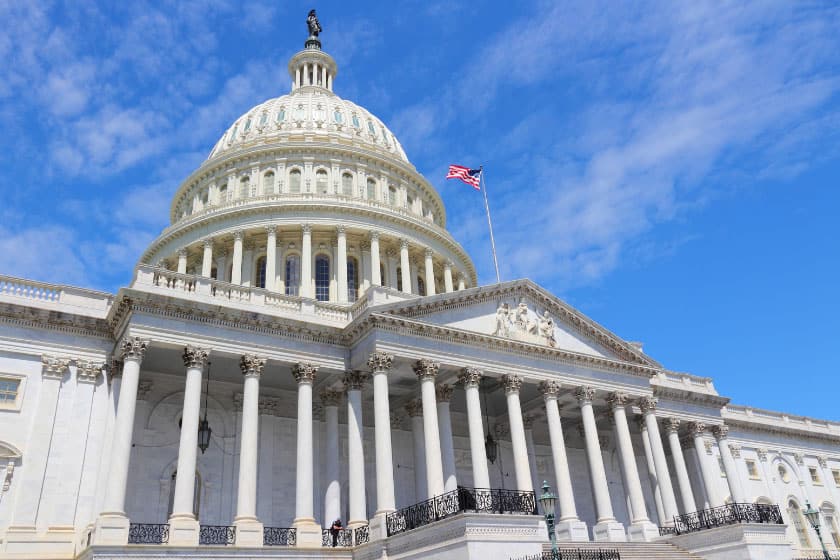
WASHINGTON, D.C.—The United House of Representatives passed in a 361-66 vote the bipartisan EQUAL Act, which would eliminate inconsistent treatment in federal sentencing of crack and powder cocaine crimes.
Led by Representatives Hakeem Jeffries (D-NJ), Don Bacon (R-NE), Kelly Armstrong (R-ND), and Bobby Scott (D-VA), the EQUAL Act has been endorsed by the National District Attorneys Association, FAMM, Justice Action Network, ACLU, and a wide variety of conservative, faith-based, law enforcement, and civil rights organizations.
In 2010, an overwhelming bipartisan majority in Congress passed and President Barack Obama signed the Fair Sentencing Act, which reduced the crack-powder disparity from 100:1 to 18:1. Lawmakers acknowledged that the arguments for the original disparity had been proven incorrect; crack cocaine is not more addictive compared to powder cocaine, more harmful to prenatal health outcomes, nor more likely to cause violent crime.
At the same time, enhanced penalties for crack cocaine crime failed to improve public safety, undermined public trust in the criminal justice system, and increased overincarceration in low-income communities and in communities of color.
"The crack powder cocaine disparity is not evidence-based and has increased overincarceration among Americans, particularly in poor communities and in communities of color," says Heather Rice-Minus, Prison Fellowship Senior Vice President for Advocacy and Church Mobilization. "We commend the House of Representatives for correcting a grave policy mistake and urge the Senate to swiftly take up and pass the EQUAL Act."
"In our work ministering to incarcerated men and women, Prison Fellowship witnesses unjust sentences related to crack cocaine crime," says James Ackerman, Prison Fellowship President and CEO. “These penalties are not only unfair, but they also demoralize and discourage incarcerated people from pursuing good citizenship behind bars. We applaud the House of Representatives for working to align federal sentencing with biblical values of fairness, consistency, and proportionality."
In the 117th Congress, Prison Fellowship and a wide variety of law enforcement, faith-based, civil rights, and center-right organizations, working with Democratic and Republican lawmakers, have pressed for a full elimination of the federal crack powder cocaine disparity.
BACKGROUND
- From 1986 to 2010, it took 100 times more powder cocaine than crack cocaine to trigger the same federal mandatory minimum sentences. While Congress reduced this "100:1" disparity in 2010, it remains at "18:1" today.
- Crack cocaine is more widely used in marginalized communities of color, which also experience more punitive approaches to crime and substance abuse. The difference in how the federal government approaches crack cocaine and powder cocaine crimes continues to gravely impact Black Americans. In FY2019, 81% of defendants convicted of federal crack cocaine distribution charges were Black.
- More than 40 states do not treat crack and power cocaine crimes differently in their sentencing schemes. Reformed federal penalties for crack cocaine have not led to an increase in crack cocaine use.
- In January 2021, Prison Fellowship® and the criminal justice reform advocacy group FAMM launched the #EndTheDisparity campaign to fix this inconsistency in federal law. In March 2021, the groups partnered in a Week of Action, where the organizations collectively organized 56 constituent meetings with members of Congress on the issue.
RESOURCES
For more information and background on the disparity and campaign see the resources below:
ABOUT PRISON FELLOWSHIP
Prison Fellowship is the nation's largest outreach to prisoners, former prisoners, and their families, and a leading voice for criminal justice reform. With more than 45 years of experience helping restore men and women behind bars, Prison Fellowship advocates for federal and state criminal justice reforms that transform those responsible for crime, validate victims, and encourage communities to play a role in creating a safe, redemptive, and just society.
For interview requests, please contact Jim Forbes, Prison Fellowship's Director of Communications, at (703) 554-8540 or email him at Jim_forbes@pfm.org.